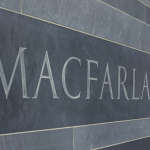The deal market continues to be a product of the coronavirus environment, with the rescue buyout of Gourmet Burger Kitchen dominating headlines as the pandemic devastates the UK’s high street.
Elsewhere, I Squared Capital’s $2bn acquisition of GTT Communications’ infrastructure business is the latest to illustrate the attractiveness of telecoms assets at a time when connectivity is more essential than ever.
The deal sees GTT dispose of its infrastructure division, consisting of pan-European, North American, subsea and transatlantic fibre network and data centre assets, to a fund managed by I Squared Capital for US$2.15bn.
The sale includes selected network and data centre assets accumulated from several GTT acquisitions, including Interoute, Hibernia and KPN International, which include a 103,000-route kilometre fibre network with over 400 points of presence, spanning 31 metro areas and interconnecting 103 cities across Europe and North America.
Three transatlantic subsea cables, including GTT Express, the lowest latency route between Europe and North America, are also part of the deal, as are fourteen Tier 3 data centres and more than 100 co-location facilities.
It builds on similar deals in the space recently, the latest of which has seen Orange launch a sale process for a 50% stake in its fibre network, Orange Concessions. Last year, the sale of the Covage network to Altice for €1bn saw it sell for 28 times its EBITDA.
More recently this month, EQT Infrastructure V signed a deal to acquire a 12% stake in Deutsche Glasfaser from its sister vehicle EQT Infrastructure lV, which bought the company in February 2020 alongside Canadian pension fund OMERS.
The Goodwin private equity team advising long-standing client GTT was led by Gemma Roberts and included fellow partner Gretchen Scott.
Speaking to Legal Business, Roberts pointed to an active market in the tech and growth capital spaces where fast-growing businesses are in need of liquidity.
‘Telecoms is relatively Covid-resilient as an industry – Its global footprint is pretty protected as it provides key infrastructure for every household and country. Ed-tech and med-tech are the kinds of businesses succeeding and being active in this kind of a world where companies are finding new ways of accessing their clients.’
Roberts said the transaction was complicated by GTT being a global business, deeply embedded in every jurisdiction. ‘Carving out the infrastructure business meant it had to be unpicked from the existing business and seamlessly pulled out to leave the rest of the business unmarred. That’s when as a legal adviser you can be really useful to the client,’ she said.
Of the deal market generally, Roberts added: ‘We will see more corporates going through carve-outs to release capital, refocus the business and downscale non-core business lines. Corporates will be asking where they want to go next, selling off non-core parts of the business and concentrating on the most focused and best structure for the future.’
Linklaters advised I Squared Capital with a team led by partner Will Aitken-Davies and including tax partner Chris Smale, TMT/IP partners Marly Didzian and Nemone Franks.
Aitken-Davies told Legal Business: ‘Digital infrastructure has been very active and pretty robust through Covid-19 and lockdown. It makes sense – with so many people working from home – bandwidth is now more important than ever. It’s also exciting because this is the seed asset for I Squared’s third infrastructure fund.’
Latham & Watkins acted for I Squared on the debt side, with a team led by Conrad Andersen.
I Squared completed a $3bn fundraising on ISQ Global Infrastructure Fund in 2013 and raised $7bn for its ISQ Global Infrastructure Fund II in 2017.
Elsewhere in Covid-driven deals, Eversheds Sutherland and DLA Piper have won roles as Boparan Restaurant Group (BRG) acquired restaurant chain Gourmet Burger Kitchen (GBK) out of administration.
GBK, which has sites in the UK and Ireland, has been operating on a reduced basis following the Covid-19 lockdown restrictions. The transaction was facilitated through a pre-pack administration, securing a ‘go forward’ portfolio of 35 sites and 669 jobs.
However, the deal will see 26 other restaurants close across the UK and 362 jobs lost as a result. Boparan also bought the Carluccio’s restaurant business in May, advised by Eversheds, and owns other brands including Cinnamon, Fishworks, Slim Chickens, Giraffe and Ed’s Easy Diner.
The Eversheds restructuring team advising the buyer was led by partner Jenna Poulton, while DLA’s James Davison acted for Deloitte as joint administrators.
Poulton noted: ‘Challenges faced by the retail, hospitality and casual dining sector were well documented prior to, and have only been further exacerbated by, the Covid-19 pandemic. Extended government support by way of prohibitions on forfeiture and the issue of statutory demands and winding up petitions to the end of the year, while helpful temporary solutions, long-term, this does not address over-rented and underperforming property portfolios throughout the sector.’
On the wider restructuring market, Poulton added: ‘We are expecting to see, as with GBK, increasing use of pre-packaged administration sales in this sector as alternative long-term restructuring solutions. This remains a critical tool to rescue businesses and preserve value.
‘However, following the recent government announcement on 8 October that independent, mandatory scrutiny will now be required of any pre-pack sales to connected parties, time will tell whether this drives down value and market appetite for this key restructuring tool.’
nathalie.tidman@legalease.co.uk














